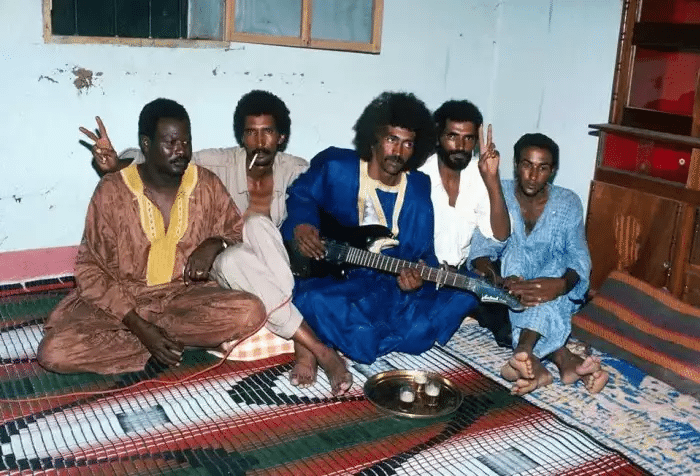The battle against al-Qaida's Islamic terrorists in West Africa has persisted for over a decade, with the governments of Mali and Burkina Faso recently suffering a string of humiliating defeats despite support from Russian mercenaries.
Leading this Islamist organization – which now threatens to control large portions of both countries – is a man with a remarkably unexpected background. An extensive investigation by The Wall Street Journal has uncovered the surprising past of al-Qaida leader Iyad ag Ghali, nicknamed "the strategist" by his followers. Under his leadership, the terrorist group has transformed from a defeated force into one capable of overpowering both local armies and foreign fighters.
Born to the nomadic Tuareg ethnic group that spans the western Sahara across Algeria, Mali, and Burkina Faso, ag Ghali lost his father at a young age during a Tuareg uprising against Mali's government.
As a youth, ag Ghali committed himself to liberating the Tuareg people from foreign rule – but chose music as his medium of resistance. Demonstrating natural leadership skills, he acquired electric guitars and recording equipment for his friends, together founding "Tinariwen," a rock-blues band that remains successful today, having won a Grammy Award while performing on stages worldwide.
Mali. So the Wankers got smoked by people in sandals. pic.twitter.com/o282k4Lrwo
— Kvist (@kvistp) July 27, 2024
"Bismillah," a song written by ag Ghali, became widely popular. Local officials told The Wall Street Journal that this track helped fuel the 1990 Tuareg rebellion – a movement that thrust ag Ghali into prominence. Returning from exile in Libya after a series of military victories, he helped negotiate an agreement with Mali's government, granting significant autonomy to the Tuareg people. This diplomatic success transformed ag Ghali from an impoverished, alcohol-drinking musician into a respected national figure who accompanied President Alpha Oumar Konaré on international trips and resided in a luxurious estate in Bamako, the capital.
A government mission in 2008 would dramatically alter ag Ghali's trajectory. Sent as part of an official Malian delegation to Saudi Arabia, he encountered preaching from a Pakistani religious organization that completely transformed his worldview, which had always contained religious elements. He abandoned alcohol, grew a beard, and began strictly observing religious laws.
Manny Ansar, who managed ag Ghali's rock band and was his close friend, recounted, "He told me he was abandoning his Rolex watch and throwing away his shoes. I can't wear this anymore." While the autonomous Tuareg region in Mali celebrated economic prosperity and launched an international music festival drawing global tourists and musicians to historic Timbuktu, ag Ghali himself grew increasingly fanatical and isolated.

Following the collapse of Muammar Gaddafi's regime in 2011, thousands of Tuareg fighters trained by the Libyan dictator returned home. Many joined the terrorist group established by ag Ghali, who had become both an opponent of Tuareg separatists and a stringent Islamist. By 2012, his forces launched a rebellion and swiftly captured Timbuktu, Gao, and Kidal. The cradle of Saharan culture fell under the control of a man who once embodied that culture but now sought its destruction. His followers demolished Timbuktu's ancient shrines and schools, burned villages, and killed opponents. In a complete reversal, ag Ghali personally banned "Satan's music" – the very rock and blues styles that had once brought rhythm and joy to the desert under his musical leadership.
Ag Ghali's forces have been engaged in continuous conflict since then. A joint offensive by French and Malian armies pushed them from power in northern Mali, but the country subsequently experienced a military coup. The new government, alongside its Russian allies, struggles to contain the Islamist threat. Now, the former drinking musician who once mingled with celebrities and dominated the club scene in his homeland may impose an Islamic winter across the entire West African region.




